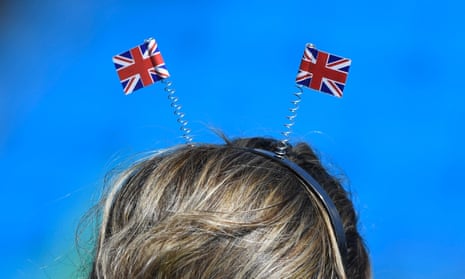Team GB’s historic success at the Rio Olympics has led to the mandatory swell of national pride. Britain is now a “sporting superpower”, according to officials. As inevitable as the outpouring of national pride was the darker side of British imperial pomp being unearthed. Conservative MP Heather Wheeler captured this mood perfectly when she tweeted “Empire Goes for Gold”, based on a colonial recount of the medal totals showing the “British Empire” ahead of the “Rest of World” and of course the “EU (Post Brexit)”.
Unfortunately, it comes as no surprise that an elected member of parliament should be so offensive, not only to most of the world but to millions of descendants of the empire in Britain. The academic Paul Gilroy diagnosed such ideas as “postcolonial melancholia”, the yearning for a time when Britain was great and a leader in the world. Britain’s place on the world stage was built off the back of the empire, and when former colonies gained their freedom, it dented not only the power of the nation, but also its psyche. The loss of the empire heralded the decline of Britain’s prowess and has left British nationalism looking for a symbolic pick-me-up ever since. Olympic success is proving quite the tonic.
And then add the backdrop of Brexit. A driving force behind the leave campaign was to “take the country back” and return to its former glories. With the insistence that we could make trade deals with the Commonwealth, this was an open call to return to the times when Britannia ruled the waves. Ethnic minorities saw through this and overwhelmingly voted remain. The wave of imperial nationalism stoked by the leave campaign certainly contributed to the spate of racial attacks post-referendum, and created the environment for an MP to send out such a vulgar tweet.
Colonial nostalgia is not just confined to the Brexiters though. It has become a common feature in TV, films and even restaurant chains. Gourmet Burger Kitchen sparked outrage with the launch of a burger called the Old Colonial, sanitising empire by superimposing palm trees in the advertisement. And while hosting a debate on reparations for slavery, the Oxford Union advertised a cocktail called the Colonial Comeback, alongside a less-than-subtle image of African hands in chains. A London bar recently had to change its name after protests that calling a place The Plantation was offensive. It speaks to the appalling collective ignorance of the horrors committed in British history that the owner, The Breakfast Group, was unaware that a bar specialising in Caribbean rum should try as hard as possible to avoid any connotations of slavery. But I suppose if you remember Britain as the nation that “abolished slavery”, as David Cameron does, perhaps they thought the name would be a testament to abolition.
The liberation of the Caribbean from direct British rule has not spared the region from colonial nostalgia. My colleague at Birmingham City University, Karen Wilkes, is about to publish a book, Whiteness, Weddings, and Tourism in the Caribbean, that explores how the exotic, colonial paradise of the Caribbean is a key selling point for tourism and destination weddings. High-end resorts frequently adopt the name “plantation” to attract customers, apparently blissfully unaware of the sordid history of the islands. The Hilton Rose Hall Hotel and Spa in Jamaica is somehow proud to advertise itself as “once the site of an 18th-century sugar plantation”. For an additional fee at the hotel you can even get married in the exclusive Rose Hall Plantation House; celebrating your nuptials on the site of the rape, torture and murder of countless enslaved Africans.
Key features of “postcolonial melancholia” are the minimising of the brutal history of the British empire, and the celebration of what Winston Churchill called “its glories and all the services it rendered to mankind”. It is this image of empire that is remembered by the majority of the British public, with a 2014 YouGov poll showing that 59% of respondents thought the British empire was “something to be proud of”. Almost half of respondents also felt that the countries “were better off” for having been colonised, presumably because the native savages were grateful for the civilisation brought by the enlightened British. Such results are an indictment of the failure of the British school system to provide even a cursory history of the empire. The defence of the white supremacist and colonial pioneer Cecil Rhodes, mobilised in response to the Rhodes Must Fall campaign at Oxford University, demonstrates how deeply ingrained these attitudes are in British education.
Lest we forget: far from being a benevolent saviour, the British empire was based on the exploitation, murder and devastation of people across the globe. Some notable atrocities include, but are by no means limited to: transatlantic slavery, famines in the British Raj, and brutal settler colonial regimes in Zimbabwe and Kenya. Hundreds of millions of people died as a result of Britain’s vicious regime. The empire collapsed after campaigns, rebellions and revolutions from the people who were oppressed by Britain. The natives did not happily accept colonial rule; they resisted at every turn because they understood the cost of the system to their nations.
Walter Rodney’s classic book How Europe Underdeveloped Africa, goes into forensic detail as to how colonialism set back the continent by creating political and economic systems that impoverished Africa, with the direct purpose of enriching Europe. Even after independence, Kwame Nkrumah, the first president of liberated Ghana, explained in the 1960s that the economic policies of the country had an “Alice in Wonderland craziness about them”, with Britain extracting all the wealth from the resources of the nation.
It is essential that the legacy of the British empire is understood because it still plays a key role in the world today. The devastation of nations by European colonialism goes a long way to explaining extreme poverty and conflict in many parts of the world, and is continued in manifestly unjust trade relations. Reminiscing about the days of empire and pining for Britain to be great again is a device to avoid any reckoning with Britain’s terrible colonial legacy and debt.
Perhaps a recognition of the brutality, violence and horror at the dark heart of empire would shake the nation out of its postcolonial melancholia. To acknowledge the dark side of colonialism, however, would destroy the nostalgia that is such a strong part of British imperial identity. It is far easier to get lost in national pride from Olympic success than to reckon with Britain’s history and real place in the world.

